As a member of the Parks Management Association (PMA) and also a Green Flag Judge I was most interested to hear the chairman of the PMA, Paul Rabbits' reply to the Dept of Levelling Up, Housing and Communities regarding the current state of UK parks and public open spaces.
The Parks Management Association was asked to respond to an enquiry from the DLUHC committee on the current state of urban parks.
Paul said before he answered any of the specific questions below, asked by the committee, that we must also make the point that the situation continues to worsen within the local authority parks sector with none of the previous committee recommendations making any measurable difference and all the issues previously raised still prevalent across the country and getting worse as highlighted by the most recent survey into the state of the UK’s parks by APSE in 2021.

It must also be stressed that the crisis is predominantly in relation to local authority parks and this sector must be better represented and included in any follow up actions. So far parks have largely been either excluded or ignored and this must now change.
Paul says the PMA has engaged with their Board which consists of senior parks management representatives from across the UK. They have discussed this at length and we present their coordinated response below. Over to Paul . . .
What has been the impact of the pandemic on parks?
Anecdotal evidence suggests that park use has more than doubled during the past two years. This is a trend that is likely to continue for many years to come as more people have recognised the value of exercising outdoors and especially within their locality.
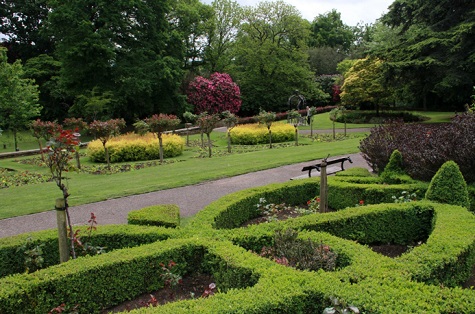
The benefits of parks was already widely known before the pandemic as evidenced by the plethora of research over recent years. However, the role they have played, and continue to have, has pushed parks to the forefront of the public’s mind, as parks have basically come to our rescue. The vital role they have played in supporting the nation’s mental health cannot be under estimated. They have helped to enhance quality of life during one of the most challenging periods in our history. They have provided emotional wellbeing, a sanctuary, reduced depression, anxiety, and fatigue. They have reduced stress and improved our emotional and physical resilience. They have reduced rates of hyperactivity and inattention to keep us physically and mentally fit.
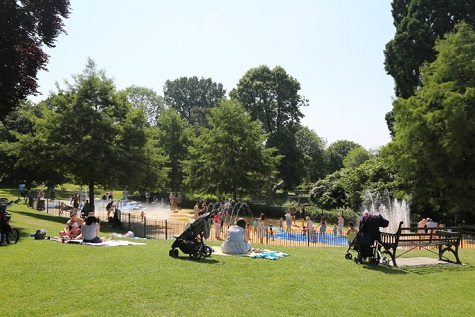
However, parks themselves have been in crisis for many years and whilst many people have rediscovered these green spaces, they have often found them in too many cases, unsafe, neglected, untidy, and with few basic facilities such as drinking water, children’s play facilities and toilets left. This has been highlighted by the recent report by APSE and the State of UK Parks 2021.
As we start to look at the recovery phase of the pandemic we need to consider what investment is now needed to make the ‘new normal’ work in our parks, particularly given that Covid will be with us in some form for the foreseeable future. We all know what we need to do should or when another pandemic arises so we should be future proofing our nation with a network of quality and accessible urban green spaces. They are vital to our communities. They are our lifeline.
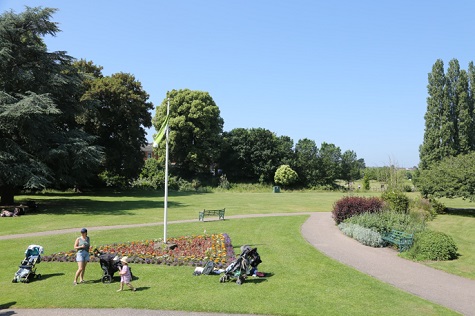
The increased demand comes with implications for the very infrastructure of our parks which has deteriorated. Warm dry days are bringing a large increase in visitors, volumes of litter and problems with car parking. The impact of increasingly wet winters have led to extensive damage to the footpath networks and grass areas, some of which will take many months, even years to repair. The loss of toilets over the years has seen a rise in defecating in our parks. These issues will all repeat until such a time that correct long term investment is addressed. Already our communities are demanding that facilities are replaced and improved at a time when the financial pressures within local government are themselves at breaking point.
Volunteers bring huge added value, however, the pandemic has highlighted that many of our volunteers are of an age and in the vulnerable and category that makes reliance on volunteers not a sustainable option. Many still have not returned post pandemic as they are still reluctant to mix with other people.
Therefore we need a national government strategy for urban green space that provides targeted funding that local authorities can align their local strategies and priorities to. Investing in urban green space and public parks will touch every community across the UK, delivering levelling up on a scale never seen before that would be historic and create a real difference to whole country.
Survey
There also needs to be a national survey of the nation’s urban green spaces based around the Green Flag Award standard or similar. This data would give a proper indication of the state of the UK’s urban green space and can form the backdrop to a new national urban green space strategy, identifying priority areas and potential costs.
Under Threat
Until this is done, parks and green spaces will remain under significant threat so their true value needs to be acknowledged to stop the constant cuts and reductions in standards to them. Given little has changed in the past 5 years consideration should be given to a statutory duty to, maintain and protect green space for the general health of our nation. Austerity along with Covid has basically devastated the sector. To reverse this, we now need support with the provision of a suitable level of targeted central and local government funding.
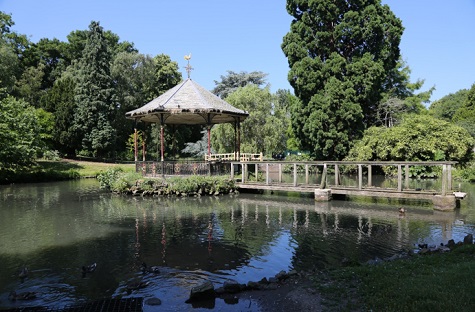
The parks industry needs a better national forum to showcase best practice and help deliver change within the wider sector. Whilst the Midlands Parks Forum is a shining example of success, there are many areas of the country where there is nothing to support park managers. The Green Flag Award Scheme could help to achieve this, along with the Parks Management Association but with limited resources and reliance on volunteers from within an industry with already shrinking numbers, its impact is limited.
Recruitment
There is also a need for specific training and funded apprenticeships to encourage more young people into the parks industry, bringing new enthusiasm, ideas and new thinking. Since the demise of Green Space there has been a lack of training to support those within the industry and to encourage new people into the sector. With suitable funding the Green Flag Award Scheme along with APSE and others, could fulfil this role and maybe even establish an ‘apprentice parks officers / managers’ programme that could be mentored and supported through qualifications and work based experiences.
Other views have also been expressed including greater awareness and greater usage of urban parks, but with no greater staff or finance leading to parks and their staff being over stretched. We have an aging work force that meant a lot of staff needed to shield and could not meaningfully contribute to an operational delivery – this is of grave concern re ongoing recruitment and skill sets within the sector. We need to make parks ‘sexy’ again and a career worth pursuing.
Natural Habitats

Nature has also suffered and declined with the increase of footfall highlighted in many ecological surveys so we will need to consider the competing demands of nature recovery / restoration of natural habitat / increases in biodiversity and the increased demand that massive usage increase has put on our valuable urban landscapes.
We know lockdown gave local people a new appreciation for parks and greenspace. Space which has been particularly significant to those in living in residences without access to gardens, nature or wildlife – all things that we often take for granted.
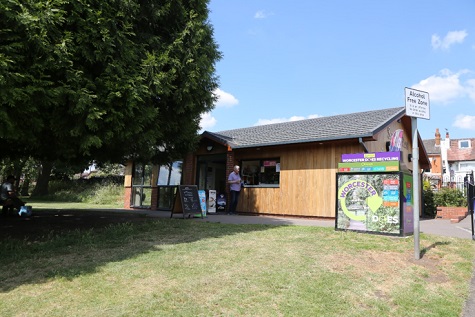
Users have talked of Parks “saving their lives” and of the benefits associated with mental health. The increase in use however brought with it additional pressures on already stretched Local Authority resources including increased litter , increase in dog fouling , vandalism and anti-social behaviour. The increase in dog ownership in particular is of concern with irresponsible, inexperienced and inconsiderate ownership impacting on other park users. Damage to children’s play equipment for example with swing seats left in a dangerous condition through chewing replaced at considerable cost.
New Resources
The priority for central and local government should be how to effectively resource parks, utilise learning from the work previously undertaken to identify new sustainable models of delivery, monitor levels of service and value for money, set targets for local authorities in relation to provision of greenspace with an up to date Greenspace Strategy. This should be a statutory requirement for all local authorities and should include a resourced action plan – ensuring they remain free at the point of use.
Volunteering is an area of growth and most welcome however feedback from the sector suggests that this requires as great if not a higher level of employee resource as managing with front line staff.
What has been the impact on parks and green spaces, including in bolstering access for disadvantaged groups, of Government initiatives such as pocket parks and the Levelling Up Fund?
Whilst well intentioned the pocket parks initiative has had no impact on the crisis in urban green space. There are a few examples of small scale community improvements which have been well received. However, predominantly the pocket parks initiative has just added to the burden of already overstretched local authority parks staff.
To date, the levelling up fund has had no impact on parks. It needs dedicated large scale funding to make any difference quality of residents lives. Our collective ambition must therefore be to have quality green spaces in every neighbourhood, rather than families having to get in their cars, driving past all the poor green space, to find a better park some miles away.

The provision of Local Open Space within the hierarchy of parks provision is important however it is the need for an appropriate level of greenspace of recreational value, well designed and meeting the Green Flag criteria (the national quality indicator for parks) that ensures that local parks and greenspace provide value for all groups within the community and for local wildlife.
Investment into District Parks within the hierarchy, where they are equally distributed across urban conurbations in our opinion offers more 'bang for bucks' in terms of delivering for local communities – these are the locations most frequently visited during the pandemic and cited as those delivering most benefit.
How would you assess the effectiveness of the Parks Action Group and what should its future role be?
The general consensus across the sector is that this has failed to have any impact at all. One of our members is a key influencer in the sector and has had no contact with PAG, who is on it and has never been consulted. Another of our Vice-Chairs was part of PAG but was the only local authority member and found the whole experience ‘frustrating’. The Chair of the Parks Management Association attempted to become a member but without any success. The group is dominated by organisations who do not have the wider sector’s interests at heart. It had virtually no representation from local government who manage most of our urban green spaces.
Other views include that The Parks Action Group has also failed to make any progress, not least because of little support from government but also with constant changes in MHCLG staffing. The group did not reflect the local authority parks sector which manage 95% of parks and green spaces. There was only one parks professional representative on PAG, and very much as an afterthought. If government are serious, if reformed it should connect direct to park managers and help to inform government policy and suggest where funding priorities could be targeted to deliver accessible and sustainable living to support the levelling up agenda.
We suggest that any future role of the PAG, if it is resurrected, should be a direct conduit between the parks sector and government with at least 50% of the membership coming from local authority parks professionals and not organisations who have limited day to day involvement in the management of these spaces.
How have local authorities engaged with their communities, including friends group forums, about the planning, effective resourcing, and managing of parks?
Parks services regularly engage with volunteers to give them tasks that go beyond what a grounds maintenance contract would do. Extra cutting back during growing seasons, making bird/bat boxes, wildlife monitoring, creating and installing revetments etc. However, even these tasks needs a staff resource to guide and advise and finance for tools/equipment and materials. Even this is difficult with the levels of staffing and funding we currently have. We have done this for decades.
Volunteers are and have always been very important, but they cannot manage our parks, they can assist on other things which would otherwise be removed from our work as time does not allow it. They ADD VALUE but are not an alternative.
The 2021 APSE State of Parks report highlighted the 37% cut to development staff. It is these staff that engage with communities and volunteers, so the amount and quality of engagement with our communities is reducing due to lack of resources.
After years of creating these networks and relationships its disappointing that this element is being adversely affected. It is also important to recognise that some communities need a lot more support and encouragement to engage with parks, and varies hugely between demographics.
However, the Green Flag Award scheme can provide the vehicle for local authorities to connect and engage with its communities, both formally, or informally depending on the local demographic. More support is needed to ensure effective community engagement is undertaken to help to better understand the needs of our communities to ensure any improvements meet the local need.

Key Messages
Parks and Green Space services provided a huge contribution to the nation’s health and well-being during the pandemic lockdowns. They were life-savers.
Many Parks services endured additional pressures during the lockdowns caused by the increased pressures of thousands of visitors and the affect this has had on infrastructure. Additional littering and flash mob events also created huge public order and major littering problems for some councils.
The impact of small scale funding has had no lasting benefit on sustaining parks and green spaces at a city scale. The new levelling up funding is starting to show some but very limited signs of helping to drive green space improvements within major regeneration projects but whilst this is great news, investment in existing Parks and Green spaces is still limited and therefore there is now a need for a dedicated Parks and Green Spaces Levelling up round.
Parks Action Group
The Parks Action Group showed potential but from the outset it lacked:
- A clear brief or mandate to influence government policy.
- It suffered from a lack of consistent political leadership.
- The group was dominated by single interest non-government organisations who have a limited part to play but the group lacked the Knowledge and Experience of Local Authority Parks Managers. We were excluded.
As a result limited progress has been made.
Future reestablishment of the group would benefit from a broader representation from the parks sector and more clear vision and objectives regarding the remit of the group and how it can directly influence government policy.
Local authority parks services have worked with parks friends groups, regional and local open space forums and national organisations such as the Parks Management Association. The ongoing support of these groups is key to helping the parks sector to support local improvement projects and volunteering opportunities to help us maintain our parks. The forums also play a huge role in helping to share best practice and help to develop skill’s within the sector.
Paul Rabbitts MLA FRSA FRHistS, MPMA
Chair – Parks Management Association